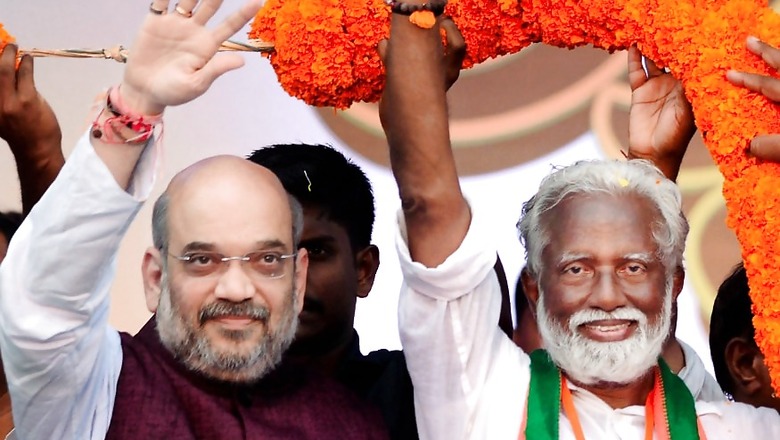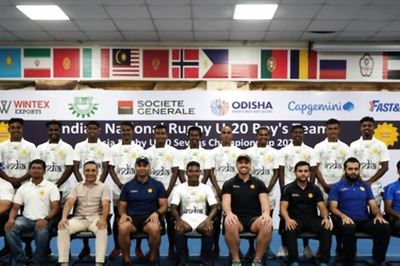
views
The recent rift in the Kerala unit of Congress over the “gifting” of a Rajya Sabha seat to ally Kerala Congress (Mani) was seen as an obvious opportunity for the BJP. But a deadlock with the RSS over a new state unit chief may hurt the saffron party’s chances of cashing in.
Trouble in the ranks started on May 25 when the Rashtrapati Bhavan issued a notification announcing the appointment of Kummanam Rajasekharan as the Governor of Mizoram.
Rajasekharan, an RSS pracharak who was made the Kerala BJP chief, was reportedly in no mood to leave the state and the Sangh, and had to be persuaded by the party’s central leadership to accept the constitutional post. Since then, the BJP has been trying to find his replacement with no luck since the RSS insists on having a say in the suggestion.
The RSS insistence stems from the factionalism and power vacuum witnessed by the Kerala BJP in 2015 when the party’s central leadership asked the Sangh to mediate. The RSS stepped in and installed Rajasekharan as the state unit chief on the condition that he would be allowed to complete his two-year term.
With a foot in the door, the RSS now wants the BJP to pick a leader acceptable to the Sangh as well, a tough ask considering there is no consensus on a handful of faces that fit the bill.
This would have been a relatively easy task in the days of the Jan Sangh when the political arm and parent organisations worked in sync. But after the Janatha Party split, the BJP took a different political route. Though Jan Sangh leaders like O Rajagopal, K Raman Pillai and KG Marar continued to be the BJP’s face in Kerala in mid-90s, ties between the Sangh and the BJP continued to fade.
The decisions taken by the BJP became more political than ideological, which irked the Sangh. The differences became apparent in 2007 when PK Krishnadas was elected as the state unit president and a senior leader like K Raman Pillai quit the party in protest.
After Krishnadas’ tenure, the decision to promote V Muraleedharan, a full-time ABVP member, to the post had also raised eyebrows.
As Muraledharan demitted the office in 2015, former Yuva Morcha president MT Ramesh emerged as a strong contender.
Amit Shah, who had just taken over party reins, even consulted some Malayalee journalists in Delhi to get a clear picture, but factionalism had set in and the RSS stepped in to make Kummanam Rajasekharan, who was not even a BJP member, the president of its Kerala unit.
This time around, the RSS is playing hardball. The burden of convincing the Sangh lies with the BJP’s central leadership, which has been unable to do so. A handful of names, the preferiti, are discussed in the media, with no formal announcement yet.
The central leadership came in for criticism at a meeting of the state leadership on Tuesday in the presence of national secretary (organisation), BL Santhosh and national secretary in-charge of Kerala H Raja. State BJP leaders close to the Sangh accused the central leadership of handing down a “punishment transfer” to Kummanam Rajasekharan in the form of Mizoram governorship. Some even demanded that Rajasekharan be re-instated as the state BJP chief.
H Raja tried to pacify the leaders, assuring that the deadlock would be broken in the coming days. But the RSS is not ready to give in to any unilateral decision by the BJP leadership.
The political scenario in Kerala is currently tilted in favour of the BJP. The Congress is busy battling a rebellion over the Rajya Sabha seat. Many of its leaders have openly challenged the PCC leadership and the high command in Delhi. The discontent which started with the defeat in Chengannur bypoll loss has grown, with the Upper House seat offer to Kerala Congress, a Christian-dominated party, being the last straw. The move was perceived as a form of minority appeasement.
The rift widened amid fears that the IUML and the Kerala Congress could now flex muscles in the alliance. The BJP could have used this opportunity to expand its base in the state among Hindu voters. Instead, it has its own problems to deal with. The lack of a strong voice in Kerala BJP is not only costing the party, but could prove to be an advantage for the CPI(M).
As each day complicates the stalemate between the BJP and the Sangh, the mess to be inherited by Rajasekharan’s successor gets bigger.
(The author is a freelance writer based in Kochi. Views are personal.)


















Comments
0 comment